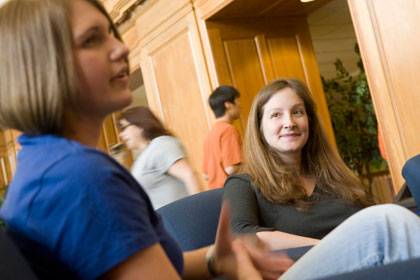
When Duke faculty members gather to talk about assessment, it usually doesn't take long before some of them complain about national accreditation standards they consider excessive for a leading university.
"Every faculty meeting on assessment starts with about five to 10 minutes of venting," said Matt Serra, director of the Office of Assessment within Duke's Arts & Sciences (A&S). "And that's OK, because you have to get that out. And then when we start talking about how assessment is important and how it can be easily done, by the end of the meeting the venting is over with and they start seeing the benefits."
Those benefits have become clearer at A&S recently. Three years ago, Duke's accreditation agency, the Southern Association of Colleges and Schools (SACS), found the university's assessment practices lacking. SACS initially cited non-compliance in five areas, most significantly in lacking documented measurement of student learning outcomes. The report left Duke at some risk of losing its eligibility for federal funds, including financial aid and research dollars.
Duke wasn't alone, and some on campus disagreed with the finding. But, Serra recalled, "most people realized the best thing was simply to get ahead of it."
Since then and without much fanfare, Duke has quietly brought more definition to a process many A&S professors and departments were pursuing informally already. They are now asking in more rigorous ways: "What should we teach our students?" and "How do we know they've met these goals?"
The trend within A&S reflects what was happening already at several of Duke's professional schools. The School of Nursing has a long history of establishing goals and measuring outcomes for its students. The Pratt School of Engineering maps learning outcomes down to specific test questions to ensure its students graduate with essential knowledge. The provost's office coordinates these and other efforts and also manages a similar assessment process for Duke's administrative units.
In this series, Duke Today explores how assessment is taking hold in A&S, the center of university academic life, and what the change means for students and faculty, especially at a time when presidential candidates and others are calling for more accountability in American higher education.